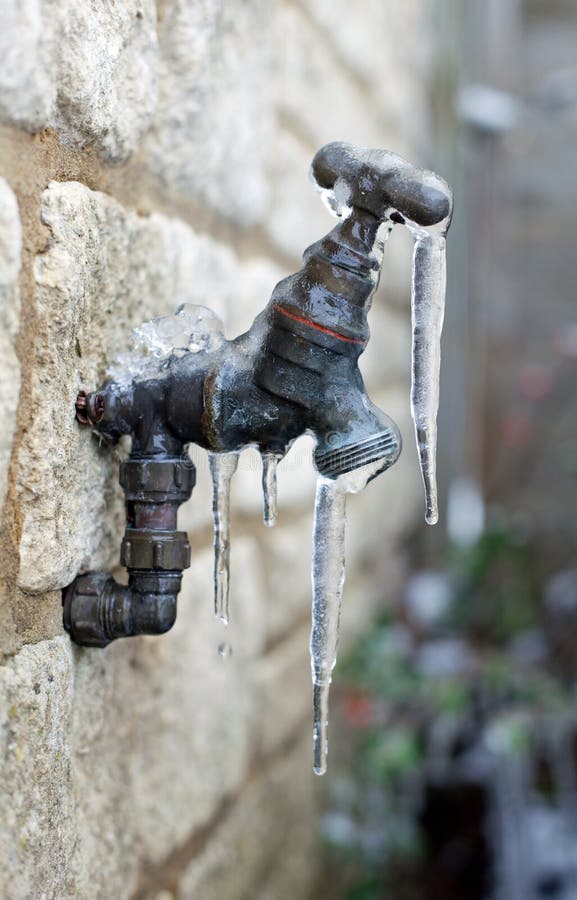Ways to Avoid Frozen Plumbing in Winter: Professional Advice
Ways to Avoid Frozen Plumbing in Winter: Professional Advice
Blog Article
Here in the next paragraphs you can find a bunch of incredibly good guidance in regards to Winter Plumbing Precautions: Preventing Frozen Pipes.

Winter can damage your plumbing, especially by freezing pipes. Right here's how to stop it from happening and what to do if it does.
Intro
As temperatures decrease, the threat of frozen pipelines boosts, possibly leading to expensive fixings and water damage. Comprehending exactly how to stop icy pipelines is vital for property owners in cool climates.
Prevention Tips
Insulating at risk pipes
Cover pipes in insulation sleeves or utilize heat tape to safeguard them from freezing temperature levels. Focus on pipelines in unheated or external areas of the home.
Home heating methods
Maintain interior rooms effectively heated, specifically locations with plumbing. Open cabinet doors to enable cozy air to flow around pipelines under sinks.
Just how to recognize icy pipelines
Seek reduced water circulation from faucets, uncommon odors or sounds from pipes, and noticeable frost on revealed pipes.
Long-Term Solutions
Architectural adjustments
Take into consideration rerouting pipes away from outside wall surfaces or unheated areas. Add additional insulation to attic rooms, basements, and crawl spaces.
Upgrading insulation
Buy high-quality insulation for pipelines, attic rooms, and wall surfaces. Appropriate insulation aids preserve consistent temperature levels and reduces the danger of icy pipes.
Shielding Outside Pipes
Garden pipes and outside faucets
Detach and drain pipes garden hose pipes before winter months. Install frost-proof spigots or cover exterior faucets with insulated caps.
Recognizing Icy Pipelines
What triggers pipelines to freeze?
Pipelines freeze when revealed to temperatures below 32 ° F (0 ° C) for expanded periods. As water inside the pipes ices up, it broadens, taxing the pipeline walls and potentially triggering them to burst.
Dangers and problems
Icy pipes can cause water system disturbances, residential property damage, and expensive fixings. Ruptured pipelines can flood homes and cause comprehensive architectural damage.
Indicators of Frozen Water Lines
Determining icy pipelines early can prevent them from bursting.
What to Do If Your Pipes Freeze
Immediate actions to take
If you believe frozen pipelines, maintain faucets available to eliminate stress as the ice thaws. Use a hairdryer or towels soaked in warm water to thaw pipelines gradually.
Verdict
Stopping frozen pipelines requires aggressive procedures and fast reactions. By understanding the causes, signs, and preventive measures, property owners can protect their plumbing throughout cold weather.
6 Proven Ways to Prevent Frozen Pipes and Protect Your Home
Disconnect and Drain Garden Hoses
Before winter arrives, start by disconnecting your garden hoses and draining any remaining water. Close the shut-off valves that supply outdoor hose bibs and leave the outdoor faucet open to allow any residual water to drain. For extra protection, consider using faucet covers throughout the colder months. It’s also important to drain water from any sprinkler supply lines following the manufacturer’s directions.
Insulate Exposed Pipes
Insulating your pipes is an effective way to prevent freezing. Pipe insulation is readily available at home improvement stores and is relatively inexpensive. Pay close attention to pipes in unheated areas such as the attic, basement, crawl spaces, or garage. Apply foam insulation generously to create a buffer against the cold. You can also wrap your pipes in heat tape or thermostat-controlled heat cables for added warmth.
Seal Air Leaks
Inspect your home for any cracks or openings that could let in cold air. Seal any holes around the piping in interior or exterior walls, as well as the sill plates where your home rests on its foundation. Additionally, make sure to keep your garage door closed unless you’re entering or exiting. Leaving it open creates a significant air leak that can lead to frozen pipes.
Allow Warm Air Circulation
During cold snaps, it’s essential to allow warm air to circulate evenly throughout your home. Leave interior doors ajar to promote better airflow. Open kitchen and bathroom cabinets to help distribute heat consistently around the rooms. If you have small children or pets, be sure to remove any household chemicals or potentially harmful cleaners from open cabinets for safety.
Let Faucets Drip
A small trickle of water can make a big difference in preventing ice formation inside your pipes. When temperatures drop significantly, start a drip of water from all faucets served by exposed pipes. This continuous flow helps prevent the water from freezing. Additionally, running a few faucets slightly can relieve pressure inside the pipes, reducing the chances of a rupture if the water inside does freeze.
https://choateshvac.com/6-proven-ways-to-prevent-frozen-pipes-and-protect-your-home/

Do you enjoy reading about How to Prevent Your Pipes From Freezing? Try to leave feedback down below. We will be glad to know your thinking about this review. Hoping that you come back again soon. If you please set aside a second to promote this content if you liked it. Thanks so much for taking the time to read it.
Call Today Report this page